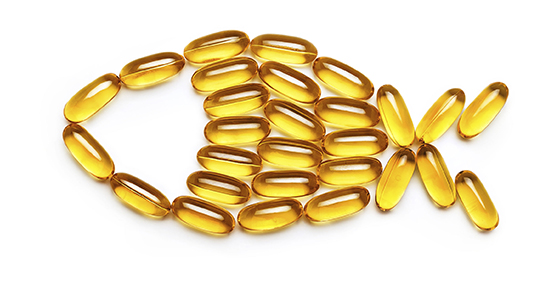
The Latest and greatest treatments for IBD: What to believe
What’s the best IBD medicine for me? Confusion on television and in your inbox....
See moresign up for our newsletter
SubscribeYou can get lots of the anti-inflammatory omega-3 oil in your diet or by taking a pill—but how much you get makes a difference. Fish get the oil from eating plants that live in water. We get our omega 3 by eating fish, nuts and seeds like chia and flaxseed.
These oils are important to improve brain function and balance the omega-6 oils that respond to an injury and start the process of inflammation. But too much omega-3 can cause bleeding and even strokes. The means the amount makes a difference.

How Much is Enough?
Omega 3, found in fatty fish and seeds, may help reduce the inflammation found in IBD. Adults with IBD need about 1000 mg to stay healthy. Just 2-3 servings of fish like salmon, albacore tuna, and mackerel per week can meet your omega 3 needs.
Fish oil pills are a popular method to get omega 3 in the diet; but, not all pills are created equal. Omega 3 comes in two forms: DHA (docosahexaenoic acid, which keeps the brain at its best) and EPA (eicosapentaenoic acid, which is anti-inflammatory). The problem is that a 1000 mg capsule of omega 3 oil or fish oil could have 300 mg of EPA and no DHA. Of the 1000mg of omega 3 needed each day, those with IBD need about 500 mg of EPA and DHA daily. But again, you don't need a pill–just 2 to 3 servings of fish each week.
According to a recent Italian study, 500mg EPA can help prevent an ulcerative colitis flare. (Clin Gastro Hepatol, 2018, pages 1268-75). Of the 30 patients on EPA, 63% were in clinical remission at 6 months compared to only 13% of those not on the extra oil.
However, new genetic studies show that not everyone can benefit from extra omega 3 oils. Know too: the high fat content can cause stomach discomfort with bloating, reflux, belching (with a foul taste) and nausea. They can also cause nosebleeds or a rash (at high doses).
Bottom line:
Make sure you're eating your fish and nuts or seeds. If you are just taking their oils, make sure you are getting at least 500 mg of EPA and DHA—but not over 3000 mg of the oils. Talk to your doctor if you're not seeing any benefit or having one of the side effects
This article, as well as all others, was reviewed and edited by a member of our Medical Advisory Board.
Subscribe Be the first to know